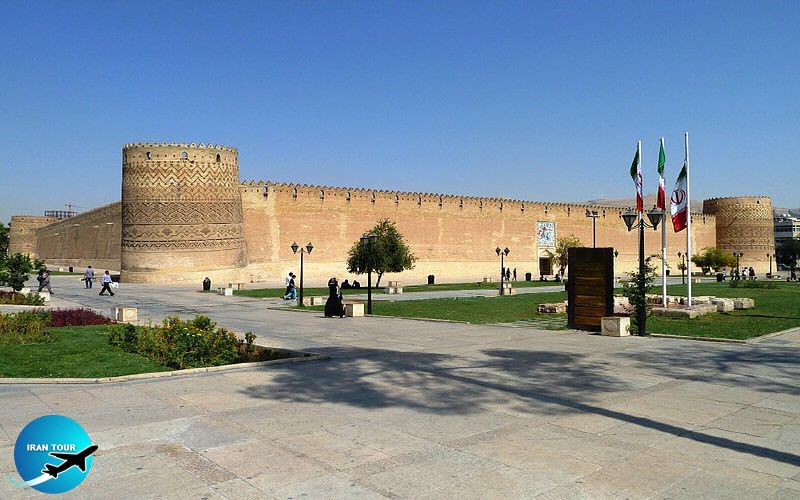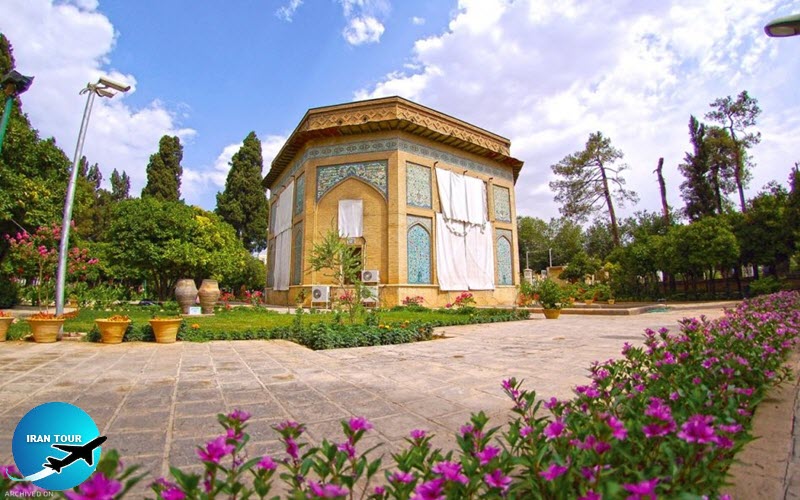Copyright 2020 - 2021 irantour.tours all right reserved
Designed by Behsazanhost
A SUMMARY OF WHAT SOME EUROPEANS HAVE SIAD ABOUT SHIRAZ
A SUMMARY OF WHAT SOME EUROPEANS HAVE SIAD ABOUT SHIRAZ.
Sir Thomas Herbert:
Herbert’s description of Shiraz in the year 1630 is unquestionably one of the finest descriptions that foreign travelers have given of this city. The famous Shirazi poet, Hafez, expressed his view of Shiraz in the well-known lines,
خوشا شیراز و وضع بی مثالش خداوندا نگهدار از زوالش
“Blest be Shiraz and its unrivaled state!
God guard it against decline and evil fate!”
Herbert, who had a poetical vein, when visiting the birthplace of the two greatest poets of Iran, Sa’adi and Hafez, was stirred to put into poetic form in English verse the emotions he felt, as follows,
“Why Should our wits dispute where Eden stood?
If in the earth or air, or if the Flood
Did spoil the surface: thus we fell from thence!
And too much knowledge lost the residence.
Yet if that place remains, for us to guess
By outward attributes of happiness,
Why should they plain, Shiraz, give place to those
Where fruitful Nile and Ganges overflows?
The curious prospect, lodges, soil, the rich
Variety of pleasure that bewitches
Each gazing eye would make the looker-on
Think Paradise had no destruction,
Or else replanted there: for there the grape
In dangling, clusters temp another rape
To taste the relish, as the apple did:
And some would touch thy fruit although forbid.
Thy towers, baths, gardens, temples make thee seem
Like Memphis, Troy, Thebes, or Jerusalem!
Thy natives (nature’s models) compose
Inferior beauty by the looks of those.
Farewell sweet place; for, as from thee I went,
My thoughts did run on Adam’s banishment.”
 |
Edward Browne, the famous English scholar, and historians, in his book, “A Year among the Persians”, describes his impressions of Shiraz, when he first saw it from the Tang-i-Alláhu-Akbar (The Pass of God Most Great), as follows:
“At our very feet, in a grassy fertile plain girt with purple hills (on the loftier summits of which the snow still lingered), and half concealed amidst gardens of dark stately cypresses, where the rose and the judas-tree in luxuriant abundance struggled with a host of other flowers for the mastery of color, sweet and beautiful in its grab f spring verdure, which clothed the very roofs of the bazaars studded with many a slender minaret, and many turquoise-hued domes, lay the home of Persian genius, the sanctuary of poetry and philosophy, Shiraz. Riveted on this, and this, and this alone, with awe such as that with which the pilgrim approaches the shrine, with a delight such as that wherewith the exile again beholds his native land, my eyes scarcely marked the remoter beauties of the scene the glittering azure of Lake Mahárlu to the east, the interminable gardens of Masjed-i-Bardi to the west. Words cannot describe the rapture which overcame me as, after many a weary march, I gazed at length on the reality, not merely equal to, but far surpassing the ideal which I had conceived. To the weeks which I spent in Shiraz, I look back with unmixed pleasure. The associations connected with it are familiar to every student of Persian; its natural beauties I have already feebly attempted to depict; its inhabitants are, amongst all the Persians, the most subtle, the most ingenious, the most vivacious, even as their speech is to this day the purest and most melodious.”
 |
John Fryer, the English traveler, who visited Shiraz in 1672, writes:
“Shiraz, not only by repute but in actuality is, after the capital the first city in Iran. The gardens and summer residences are outside the town. I saw the most famous ones, and they entertained me in their arbors every day from sunset to midnight. One of the gardens, called Bagh-i-Safa, was fresher and pleasanter than the others, and although every garden had its own attractiveness, yet this garden seemed to possess all the kinds of attraction, which the others had. Here there grow the tallest cypresses in the world; and the nightingales sing their sweet songs, which bring ecstasy to the most sorrow-stricken persons.”
 |
Goethe, the famous German poet, under the title, “A pleasant sight”, writes this, in his travelogue, about Shiraz:
“How is it that today in this pleasant plain the sky has clasped the encircling mountains? Why in this morning mist today do new visions appear? Are these elevations and depressions really veils which the king’s courtier has uplifted to shield the beautiful ladies of the earth a carpet spread beneath the feet of the King’s favorite? Everywhere it is so richly colored in shades of red and white, that a more beautiful sight cannot be seen. But, O Háfez! Have they turned thy Shiraz into a land of the northern mists? If this is not Shiraz, then where else is there a place so beautiful?”
Albert Champdor, the contemporary French orientalist and historian, in his book, “Cyrus the Great”, describes Shiraz in these terms:
“In this place, where is so rich, the poets with their faultless and engaging descriptions have expressed in verse the beauties and excellencies of nature, and the palm groves surrounding the magical towns and gardens of Shiraz, whose name in human recollection stands for freshness, beauty, and poetry. Shiraz, this enchanting abode, which is for us the epitome of the beauties of the Orient, is a word which, like the words of a prayer, we speak in reverent tones. Shiraz has always been celebrated in the songs of the poets for its flowers, its sparkle, and its clear star-lit nights.”
 |
Eugéne Flandin, the French historian and scholar of the nineteenth century, who visited Shiraz in December 1841, and gave in his travelogue a comprehensive account of its historical monuments, and of the conditions then prevailing in this city, says:
“The inhabitants of Shiraz are more attractive than all the other people of Irán. Anyone would quickly be charmed by them, and readily accept their friendship. This city has a right to boast itself beyond the other cities of Irán, for two of the greatest masters of oratory of the continent of Asia. Sa’adi and Háfez were born there. The wine of Shiraz is the best of the world’s wines. The inhabitants of Shiraz are pleasant-spoken and hospitable. One of the titles that may be ascribed to Shiraz is that it was the birthplace of Sa’adi and Háfez. The various odes and sonnets, which have been translated into our language, of both these poets, attest their prowess and supremacy. Though, as far as I was able, I did not fail to pay respect and homage at their tombs, still, I feel I did not adequately perform this duty.”
 |
Henri Renier writes:
AUTUMN IN SHIRAZ.
“The roses of Shiraz have faded; the nightingales have ceased their tuneful Persian melodies; the butterflies have settled on the stems of the flowers, and have gone to sleep; the romantic town no longer relates the legends of the past; no longer from golden vessels do scent and aloe and incense perfume the air, nor do the alluring lamps shed their light, for the roses of Shiraz have faded. But, O daughter of Shiraz! For me the New Year festival is always in view, for the sight of thy languorous eyes is as an alluring light to me; the scent of thy curling locks is fragrant as amber to me, and thy small mouth is to me like a rose-bud newly unfolded. Thou too art like the town with its romantic history, for every moment thou relates some fresh fable.
- Details
- Category: Shiraz Tourism